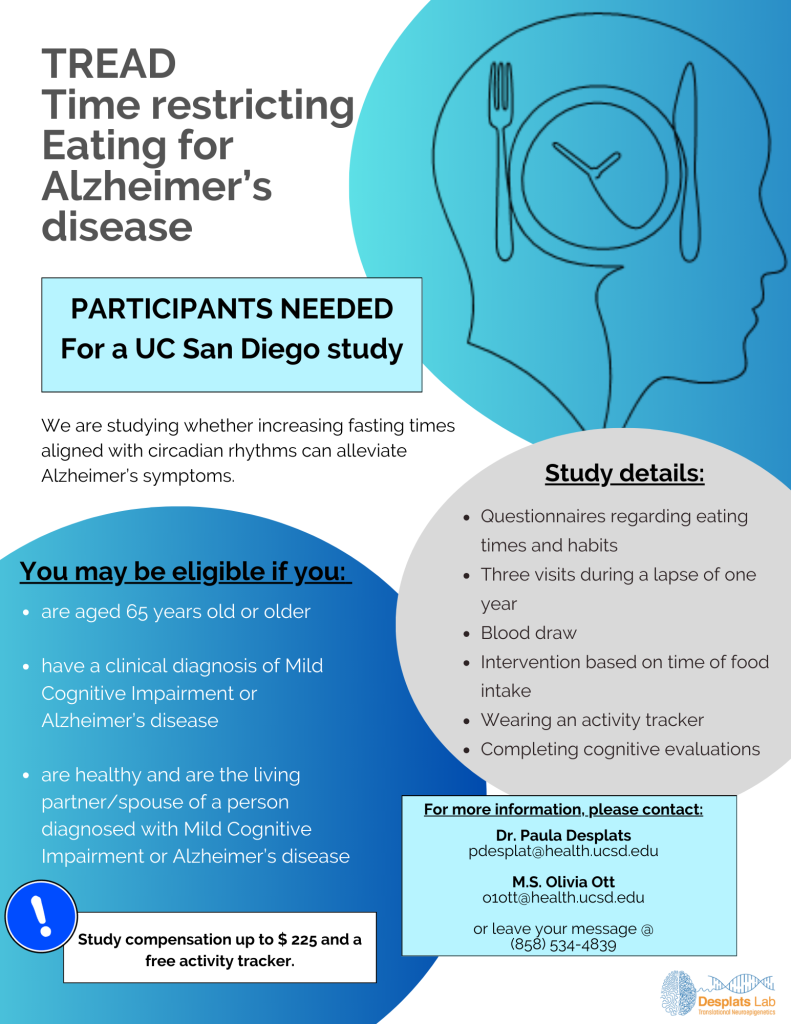Clinical Trials
If you are interested and think you may qualify, please contact:
Dr. Paula Desplats- pdesplat@health.ucsd.edu
M.S. Olivia Ott- o1ott@health.ucsd.edu
or leave your message @ (858) 534-4839
Aging is associated with the deregulation of body systems. One of the mechanisms that starts working with less precision as we age is the circadian clock, the body timekeeper that serves to synchronize our physiology to the environment. This biological clock is very important to sustain health and to get our bodies ready to eat, digest nutrients, move, exercise, and sleep. It can also influence cognitive abilities.
Unfortunately, the vast majority of Alzheimer’s disease’s patients experience a major deregulation of circadian rhythms, which manifest as alterations in sleep and increased confusion and disorientation during the evening. These symptoms have a major impact on both patients and caregivers, and constitute a main factor for nursing home placement.
In our lab we recently tested whether restricting the timing during which our model mice eat, which is known as time-restricted feeding (TRF), could change Alzheimer’s disease pathology, progression, and even symptoms. After 3 months on the TRF regimen, the animals showed many improvements: they slept longer, and their behavior was calmer, with a reduction in hyperactivity or agitation. In fact, they looked very similar to regular non-diseased animals.
These results are very exciting, and you may have seen them in the news. But they are derived from animal studies.
We are now initiating the first clinical study of “time-restricted eating” in patients with Mild Cognitive Impairment and early to moderate Alzheimer’s to evaluate if this regimen is feasible and its potential benefits.
Our study is called TREAD for time-restricted eating in Alzheimer’s Disease, and we are enrolling participants 65 years or older that already have a diagnosis of MCI or AD.
The intervention is simple, and requires following a schedule of eating centered in night fasting. There are no changes to the diet or specific meal plan to follow.
Please reach out to the PI, Dr. Paula Desplats, at pdesplat@health.ucsd.edu if you are interested in participating in this study.







